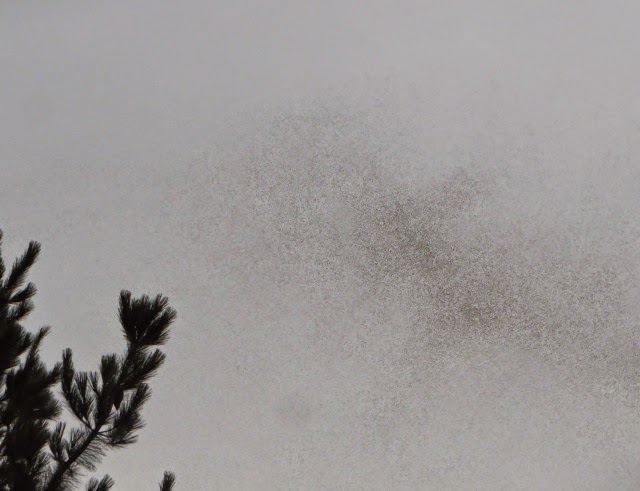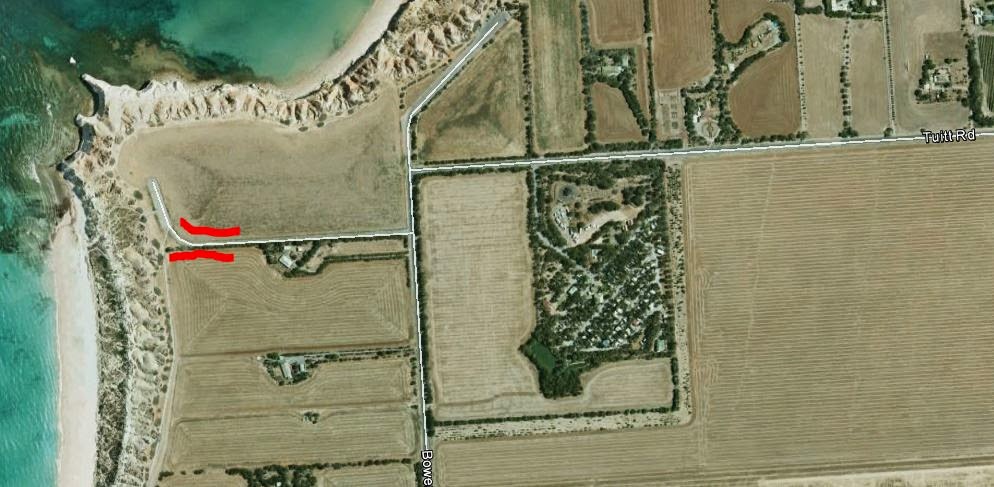More rodent wars!
 When we got back from a trip to the City (ie Canberra, as opposed to 'town' which is Queanbeyan) the small dog greeted us as effusively as ever . However she then started to show a whole lot of interest in some gear stacked against a wall.
When we got back from a trip to the City (ie Canberra, as opposed to 'town' which is Queanbeyan) the small dog greeted us as effusively as ever . However she then started to show a whole lot of interest in some gear stacked against a wall.I assumed there was a mouse (in Kiswahili, panya kidogo) lurking under there. So I started to shift the gear - suitcases - with a small terrier lurking behind my legs. As I shifted the last case a panya kubwa (in KiIngereza, rat) bolted out. Having to dodge my legs meant the terrier was a little late getting going. She did however work out where the rat had gone and spent the next several minutes as in the image above attempting to dig through:
- the cement floor; or
- the brick wall; or
- the wooden side of the cupboard
Her objections were ignored and after putting some barricades in position I placed some warfarin in a position to include it in the rat's - but inshallah not the dog's - future diet.
We now hope she is willing to ignore the issue and not demand to go and speak to the rat in the middle of the night!



Comments
I had a similar battle - within my car. It lasted 3 days (nights). Little (big) buggers had chewed their way into the car from below, through the rubber "boot" where the gear stick comes up from the gearbox.
Dog went crazy every time she got into the car. Even though I had ascertained the rats were not living in the car whenever I was there - Lena's nose would not believe my assurances.
Problem eventually solved with baits - one each over 3 nights - and then a new gear-stick "boot".
By the way, what language were you using for "rat" and "mouse".
Cheers
Denis
The same prnciple applies to things that fly. Ndege kidogo (some sort of bird) while ndege kubwa was an aircraft! Quite probably there were better formal ways of dealing with these concepts but they worked for us in chatting to Wananichi (ie the locals in Tanzania).
KiIngereza is English. Kiswahili is very much driven by suffixes and Ki means language so Ki Ingereza is the language of the English while Kimaasai is the language of the Maasai. Wa means people; na means of. and nichi is country so Wananichi is people of the country or "locals".
Then you get to verbs. I forget the whole word but one 6 letter word appeared on road signs that basically meant malaria kills you. The last letter meant "kills" the rest were modifiers equivalent to subject, object and tense.